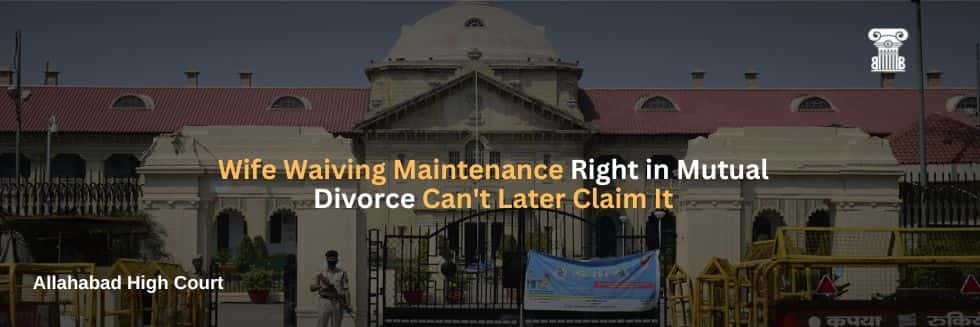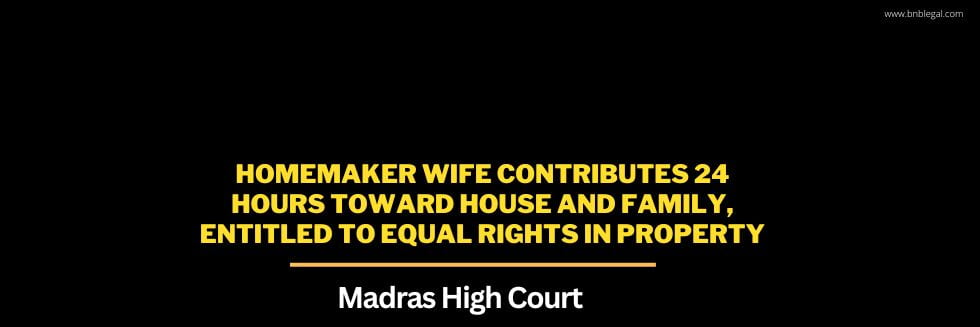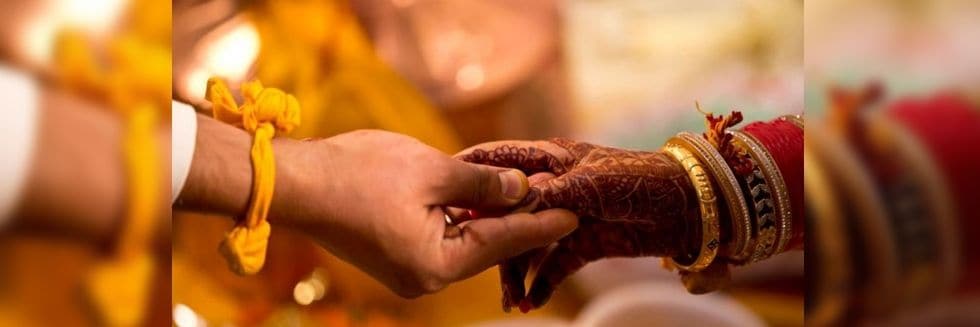In the case of Gaurav Mehta v. Anamika Chopra, the Allahabad High Court addressed the issue of whether a wife who waived her right to maintenance during divorce by mutual consent could later claim it. The couple had mutually filed for divorce in 2006-07 under Section 13B(1) of the Hindu Marriage Act with agreed-upon terms including the wife’s waiver of maintenance.
However, years later, the wife sought maintenance for herself and their son. The Court concluded that the wife having consciously waived her right to maintenance during divorce could not later claim it. Therefore, the husband’s plea to revoke the interim maintenance awarded to the wife was upheld.
CASE DETAILS:
Gaurav Mehta v. Anamika Chopra
Criminal Revision No. – 4152 of 2023
Allahabad High Court
Coram: Justice Vipin Chandra Dixit
BACKGROUND:
- In 2006-07, both the husband and wife submitted a petition under Section 13B(1) of the Hindu Marriage Act seeking divorce by mutual consent.
- The terms of the divorce including the agreement that the wife would not pursue any maintenance claims and custody of their minor son were agreed upon.
- The divorce decree was issued in August 2007 based on these mutually agreed terms.
- Following the divorce, the wife began living separately with their son. However, in 2013, approximately six years after the divorce, an application was submitted on behalf of the minor son under Section 125 CrPC seeking maintenance from his father.
- This application was granted in November 2019 with a directive for the father to pay Rs. 15,000 per month as maintenance to his son.
- Subsequently, in 2020, approximately thirteen years after the divorce, the wife also filed an application under Section 125 CrPC seeking maintenance from her husband equivalent to 25% of his income.
- An additional application for interim maintenance was filed and the family court in the impugned order directed the husband to pay Rs. 25,000/- as interim maintenance to the wife.
SUBMISSIONS:
The Senior Advocate representing the husband argued that both parties mutually filed for divorce under Section 13B(1) of the Hindu Marriage Act and the divorce decree was granted based on the agreed terms and conditions. He further contended that the wife explicitly consented to waive her right to claim maintenance or compensation from her husband and therefore, she cannot claim any maintenance now.
On the other hand, the wife representing herself stated that she is facing significant financial hardship, especially considering her son’s education expenses in Canada. She mentioned that at the time of the divorce, she was employed in a private company earning Rs. 1,86,000/- per month. However, she later left the job and is currently earning Rs. 75,000/- per month as an intern in a law firm and receiving only Rs. 67,500/- per month after deductions. She pointed out that her husband’s income is approximately Rs. 4,50,000/- per month.
OBSERVATIONS:
In light of the submissions made, the Single Judge first referenced the Supreme Court’s decision in the case of Ruchi Agarwal v. Amit Kumar Agrawal and others wherein it was held that once a wife has obtained divorce without contest based on terms of compromise, she cannot pursue a criminal complaint against her husband as it amounts to harassment. The Court also cited Section 125(4) of the CrPC which stipulates that no wife shall be entitled to receive maintenance from her husband if she is living separately by mutual consent.
Based on these considerations, the Court concluded that the respondent-wife was not entitled to any interim maintenance as she had waived her right to claim maintenance at the time of divorce. Consequently, the husband’s revision plea was allowed. The Court noted that the wife had been living independently from her husband since 2006 and the divorce had been mutually agreed upon in which she consciously chose to forego her right to claim maintenance. Therefore, the Family Court’s decision to award interim maintenance to her was deemed erroneous.
JUDGEMENT:
A bench presided by Justice Vipin Chandra Dixit while granting a revision plea filed by the husband challenging an order of the Family Court held that if a woman voluntarily relinquishes her right to claim maintenance from her husband at the time of divorce by mutual consent, she cannot subsequently seek the same relief.






